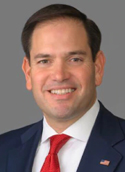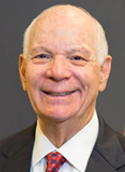Intuit QuickBooks hosted a webinar on May 6 called Connecting Small Businesses with Experts, featuring Senators Marco Rubio (R-Fla.) and Ben Cardin (D-Md.) as well as Luke Voiles, VP, Business Leader at QuickBooks Capital at Intuit.
 Senator Marco Rubio (R-Fla.)
Senator Marco Rubio (R-Fla.)
Small business owners addressed their concerns and sought clarification regarding the Paycheck Protection Program (or PPP, as we all know). The program, which began accepting applications on April 3 and has since received a second infusion of capital, was designed for businesses to keep employees on the payroll and provide some relief for rent and utilities for an eight-week period. The program has had its share of problems and successes.
 Senator Ben Cardin (D-Md.)
Senator Ben Cardin (D-Md.)
Where the PPP stands
Both Senators noted that the brand-new program, which was part of the CARES Act passed in late March, was put together in a matter of weeks, and while it had some bumps along the way, it has provided funding (or has been approved) for approximately 4 million small businesses nationwide, as of May 6. In bipartisanship, however, they both agreed that more needs to be done.
“We're very pleased with the programs that we have provided under the CARES Act for small businesses. We got money out quickly, and we saved a lot of small businesses. It had problems on startup, there's no question about that, and we need to get the data to understand exactly how the monies have been distributed today. But one thing is clear to me is that our smallest of the small businesses need additional attention. They did not have the same type of banking relationships as the larger of the small businesses that were first to get the PPP,” said Cardin.
Eyes on forgiveness
With so many businesses now approved or funded through PPP, owners look for clear guidance on loan forgiveness. Although Congress wrote the eight-week period into the bill, the guidelines for the program’s implementation were through the Treasury Department—specifically the 75/25 split for payroll to rent, mortgage interest, and utilities, and the parameters of forgiveness. Treasury has not yet released full guidelines for how the program’s forgiveness will be interpreted.
“We may find that the June 30 deadline [for furloughed staff to return to payroll] is not the right cutoff date for someone. There may be some efforts to extend that as well, because of the geographic diversity and who’s shut down and who isn't, and the unique attributes of different industries. We need to be flexible about that moving forward,” said Rubio.
He added: “If the forgiveness is not fair, then the very intent of the law is gutted. This was never designed to loan money and have debt put on the backs of businesses that were struggling. It was designed as a way to deliver support for payroll to small business, and the only reason why there's a loan component to it is that that is the incentive to use it for payroll.”
More stimulus?
Congress is currently putting together a fourth package that is expected to include assistance for state and local governments, more aid for small businesses (especially for an extended period of payroll support), and additional help for individuals. Associations like the NLA, United Motorcoach Association, and American Bus Association are pressing Congress for additional industry-specific aid.
“There's going to be variation in industries. For example, I personally believe that tourism and hospitality, hotels, and to some extent restaurants were the first ones thrown into the crisis, and they're going to be the last ones that come out of it for a lot of different reasons out of their control. So that will be a factor to consider,” Rubio said about what additional payroll support might look like. “I continue to believe that hospitality needs to be treated differently from other industries because there's a lot of externalities that are out of their control from local restriction to international travel to consumer behavior.”
Cardin also addressed the issue of childcare as many schools, childcare facilities, and summer camps have been closed indefinitely and may be an impediment for employees to come back to work. Although the CARES Act did offer some immediate protections for those who had to leave their jobs due to COVID-19, whether it was for their own health or to care for a family member, Cardin admits that the issue is complicated and is something they are considering in the next package.
In closing, both senators recognized that Congress is still focused on containment, but at some point will have to shift toward the phase of recovery. They are cautiously optimistic, but admit that recovery could last well into next year.
The full recording of the webinar is available here.
[05.07.20]

